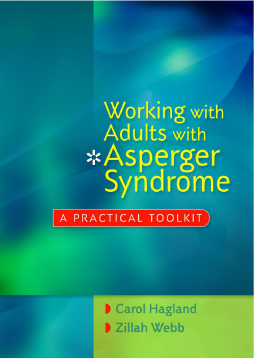
Additional Information
Book Details
Abstract
Supporting someone with Asperger’s Syndrome (AS) can, at times, be frustrating and challenging. But a greater knowledge and understanding of the problems facing people with AS can make a huge difference to their lives.
This practical workbook was developed in consultation with carers, and can be used in groups or with individuals, concentrating on particular characteristics to learn more about the people you are supporting, or it can be used as a resource for everyday information seeking and problem solving. Atypical social behaviour and the importance of routine are explained, as well as considering relationships, emotions and mental health. Packed with exercises and case vignettes to help you to get to know the person you are supporting better, there is also a trouble-shooting section at the end of each chapter with practical solutions for tackling common problems.
Working with Adults with Asperger Syndrome - A Practical Toolkit offers an easy-to-use, person-centred approach, which will prove a valuable resource for families, friends and a wide range of professionals involved in supporting an adult with AS.
Working with Adults with Asperger Syndrome provides a workbook developed from the experiences of many working with Asperger Syndrome patients, and this represents a treasure trove of tested approaches that can be used in groups or with individuals. From communication and mental health to exercises and case histories to encourage interaction, it's a winning guide any mental health library needs.
The Midwest Book Review
Carol Hagland worked as a chartered clinical psychologist in the NHS for over thirty years, the last ten years being in the field of learning disabilities. During that time she developed a particular interest in Asperger's syndrome, and worked with many clients and their families or carers, providing diagnoses, counselling and advice about care and support. Zillah Webb is a consultant clinical psychologist for the Learning Disabilities Service, Surrey and Borders Partnership NHS Foundation Trust. She has been working with people with learning disabilities and their carers for over 30 years.
Table of Contents
| Section Title | Page | Action | Price |
|---|---|---|---|
| Acknowledgements | |||
| Preface | |||
| Part A Introducing a strengths-based approach | |||
| Chapter 1: Why a strengths-based approach in international development? | |||
| Chapter 2: Philosophical underpinnings of a strengths-based approach | |||
| Chapter 3: What is a strengths-based approach? | |||
| Chapter 4: How change happens within a strengths-based approach | |||
| Part B Exploring a strengths-based approach | |||
| Chapter 5: Perspectives on power | |||
| Chapter 6: Culture and a strengths-based approach | |||
| Chapter 7: Psychology and a strengths-based approach | |||
| Chapter 8: The development worker | |||
| Part C Application of a strengths-based approach in international development | |||
| Chapter 9: A strengths-based approach and program cycle | |||
| Chapter 10: Rethinking monitoring, evaluation and research | |||
| Chapter 11: A strengths-based approach and approaches in international development | |||
| Chapter 12: A strengths-based approach and development sectors | |||
| Chapter 13: Conclusion | |||
| Websites and training manuals applying strengths-based approaches | |||
| References |
